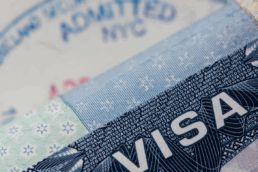UCIS has verified an increase in worksite visits to H1B employers. The site visit program began in July 2009, and includes a plan to conduct 25,000 such visits in fiscal year (FY) 2010. This is approximately five times the number of site visits that were conducted in FY2009. Conducted through the USCIS Office of Fraud Detection and National Security (FDNS), the site visits verify basic facts relevant to the validity of the H-1B petition. This includes verification of the existence of the employment location, and whether the foreign national is performing the duties described in the H-1B petition at the work location listed on the labor condition application (LCA) filed with the H-1B petition. Also verified is payment of the prevailing wage salary, as required by the LCA.
FDNS currently consists of approximately 650 Immigration Officers, Intelligence Research Specialists, and Analysts located in field offices throughout the United States. Additionally, FDNS has contracted with multiple private investigation firms to conduct site visits on behalf of FDNS. FDNS’ budget is derived from the Fraud Fee, which is paid by employers with each initial H-1B or L petition.
Following is information that employers should know about FDNS’ current H-1B assessment program, and how to respond if an FDNS Officer visits the office as part of this assessment program.
The Site Visit:
- The majority of site visits conducted under this program have been unannounced.
- The site visits may occur at the H-1B employer’s principal place of business and/or at the H-1B nonimmigrant’s work location, as indicated on the Form I-129 petition and the Labor Condition Application.
- The employer may request that its immigration attorney be present during the site visit. However, FDNS officers will not typically reschedule a site visit so that an attorney may be present. FDNS has stated that it will allow counsel to be present by phone, if requested.
- FDNS does not need a subpoena in order to complete the site visit because USCIS regulations governing the filing of immigration petitions allow the government to take testimony and conduct broad investigations relating to the petitions.
In response to this increased activity, there are some steps an employer can take to be prepared in the event of an unexpected site visit:
- Designate one person with your organization as the “go to” person in the event of an unexpected site visit. This person should be aware of the types of requests FDNS inspectors may make, how to contact your immigration attorney and where to locate file or other evidence that may be requested.
- Inform reception area and/or security staff of the contact person designated and that these inspections are a possibility so that they can calmly and professionally respond.
- Ensure that an I-9 is on file for EVERY employee.
- Enroll in and participate in the Department of Homeland Security’s E-Verify program. E-Verify is an Internet-based system that allows an employer, using information reported on an employee’s Form I-9, to determine the eligibility of that employee to work in the United States. For most employers, the use of E-Verify is voluntary and limited to determining the employment eligibility of new hires only.
- Retain complete copies of I-129 petitions and supporting documents in a confidential file maintained by a designated company official or by the employer’s immigration attorney.
- Maintain complete and accurate Public Access Files for ALL H-1B employees. View information on these files here.
- Do not guess! If an FDNS officer requests information that the employer can not provide without further research, indicate this to the FDNS officer. This is especially important for representatives who do not have access to information being requested by the FDNS officer and there are no other company representatives available to answer the questions during the unannounced visit.
Whenever there is a material change in an H-1B employee’s job, such as termination or a significant change in duties, you should contact Berardi Immigration Law so we may assist you in fully complying with any regulations that may apply.
Ready to have Berardi on your side?
Whether you’re a business looking to hire or a professional hoping to relocate, immigration law can be complicated. But you don’t have to do it alone. Put our experience to work for you.


